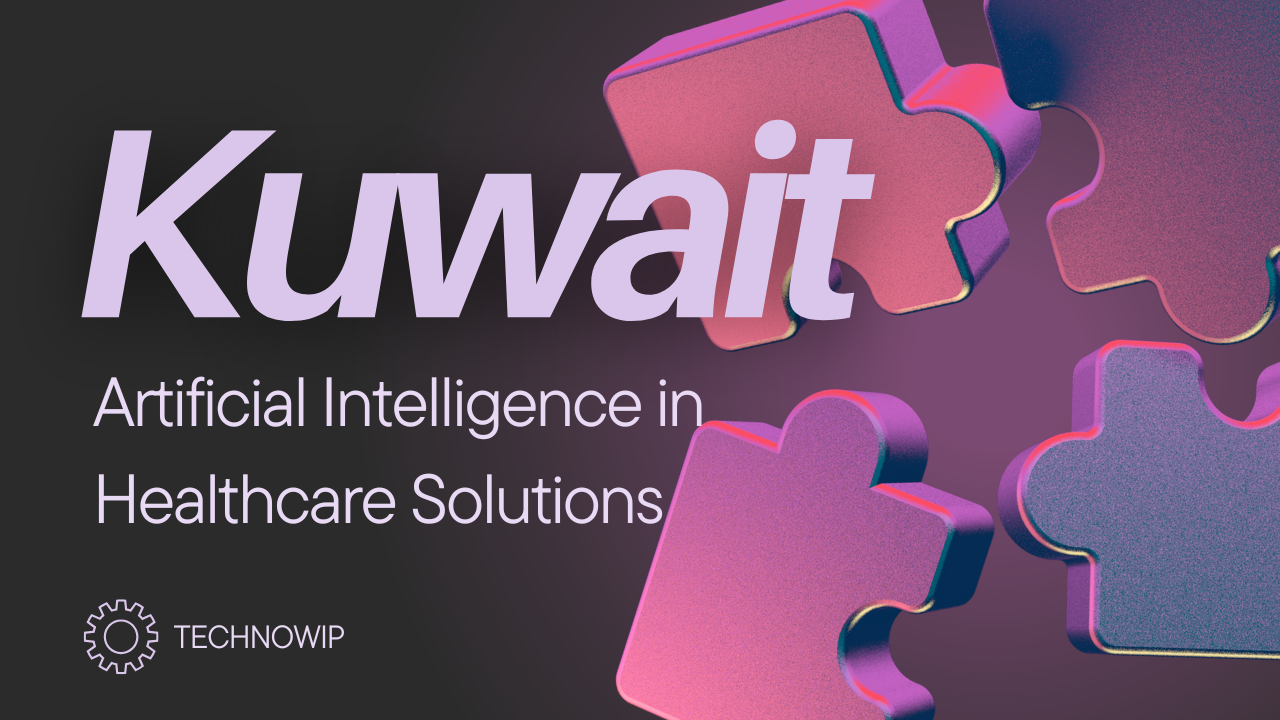Introduction
Artificial Intelligence (AI) in healthcare has revolutionized how countries around the globe deliver medical services. Kuwait, known for its rapid technological adoption, has made significant strides toward adopting Kuwait Artificial Intelligence solutions into their healthcare framework , from patient diagnosis and treatment through operational efficiency – paving way for more robust, data-driven care delivery models. We will delve deep into how Kuwait’s healthcare landscape has progressed via Kuwait Artificial Intelligence solutions with real world examples as well as data backed case studies in this blog post.
Problem: Kuwait’s Healthcare Challenges and the Need for AI
Kuwait’s healthcare system has long been plagued with difficulties, from long wait times and increasing chronic disease burden such as diabetes, obesity and cardiovascular conditions to meeting all healthcare requirements of 4.4 million Kuwaitis.
- The Ministry of Health has long acknowledged the need to combat resource constraints, patient overload and improve health outcomes across an aging and expanding population. Artificial Intelligence (AI) solutions have already proven adept at meeting some key challenges:
- Rising Chronic Disease Burden in Kuwait: With such high rates of noncommunicable diseases in Kuwait, healthcare resources must meet an ever-increasing need to monitor patients and perform follow-ups on patients regularly.
- Healthcare Workforce Challenges: Due to shortages in skilled healthcare personnel, patient care quality can suffer severely; AI provides an ideal support tool in such circumstances.
- Operational Bottlenecks: Traditional healthcare systems often involve lengthy wait times and delayed diagnosis; AI seeks to streamline these processes for quicker responses that offer improved healthcare services.
- Data Management and Utilization: Kuwait’s healthcare facilities generate vast quantities of medical information which, left unused, miss out on exploiting any insights AI may offer for diagnosis, treatment and preventive healthcare services.
Kuwait is rapidly turning towards artificial intelligence solutions in healthcare as an innovative means to overcome obstacles and raise patient care standards across its nation.
Agitation: Uncovering the Real Impact of AI in Healthcare
Let’s investigate how Kuwait’s AI-powered healthcare solutions are directly addressing pain points through data-driven insights and practical application.
1. Early Diagnosis and Predictive Analytics
One of the most transformative applications of AI in Kuwait’s healthcare system lies in early diagnosis. AI algorithms trained on large datasets have demonstrated impressively accurate detection rates when applied to early disease stages; for instance, Kuwait’s Ministry of Health collaborated with an AI provider to boost predictive analytics in diagnosing diabetes using data from thousands of patient records; this model could identify patterns and flag high-risk individuals before their condition progressed further.
Studies conducted in Kuwait demonstrate this approach has resulted in an impressive 20% rise in early diagnosis rates among patients screened using AI tools, helping more people start treatment sooner while alleviating strain on Kuwait’s healthcare resources. With diabetes and chronic diseases being such major concerns in Kuwait, early detection could prove lifesaving to its healthcare infrastructure.
2. Enhanced Imaging Diagnostics
Radiology departments at Kuwait hospitals have increasingly turned to artificial intelligence (AI) tools as part of their imaging analysis processes for imaging scans such as MRIs, CTs and X-rays. AI image recognition software quickly processes these scans and highlights abnormalities which might otherwise have gone undetected due to time or human error; for instance Mubarak Al-Kabeer Hospital implemented such AI solutions for lung scans to increase diagnostic accuracy for respiratory diseases.
Recent case studies conducted at this hospital demonstrated how AI-assisted imaging improved diagnostic precision by 15%, significantly decreasing false negatives. Not only was this an advancement for radiologists’ abilities but it also provided patients with urgent conditions faster and more accurate diagnoses that needed immediate medical care.
3. AI in Telemedicine and Remote Patient Monitoring
Telemedicine has rapidly grown popular worldwide, including Kuwait. The Ministry of Health collaborated with artificial intelligence technology vendors to improve telemedicine services during the COVID-19 pandemic – AI enabled better remote patient monitoring while simultaneously ensuring patients received necessary treatment.
Wearable devices equipped with artificial intelligence (AI) can monitor heart rate, blood pressure and glucose levels in real time to provide healthcare providers with real-time data.
AI can also assist healthcare providers with remotely managing diabetes patients remotely. By monitoring continuous glucose monitoring data and alerting healthcare providers of any abnormal trends or any need for timely intervention. Since incorporating AI into telemedicine systems in Kuwait’s hospitals, they have witnessed an estimated 25% reduction in unnecessary hospital visits for chronic disease management.
I have personally witnessed AI’s impact in telemedicine first hand. Being able to get alerts directly on a wearable device from healthcare providers makes this progress feel truly meaningful to me and AI has truly demonstrated its worth here.
4. Efficient Hospital Operations with AI
Hospital operations management in Kuwait is another arena where AI has proven invaluable. By analyzing admissions data, bed occupancy statistics, patient flow patterns and surgical schedules to optimize resources within hospitals – Al-Adan Hospital launched an AI model specifically developed for forecasting patient admissions to optimize bed allocation accordingly as part of a pilot project.
Results have demonstrated how AI assisted hospitals to decrease wait times by 18% and allocate their resources more effectively during peak times, meaning shorter waiting times for patients, better utilization of medical staff members, and overall improved patient satisfaction.
As I consider AI’s efficiency gains here, it becomes apparent that AI not only benefits doctors but the entirety of healthcare infrastructure as a whole. After witnessing long hospital wait times first-hand, faster AI-optimized care seems like a much-needed change.
5. AI-Powered Drug Discovery and Development
Drug discovery and development can be an extended and expensive process. Kuwait has taken steps towards employing artificial intelligence-powered drug discovery by teaming with global pharmaceutical companies to investigate treatments tailored specifically for their population’s particular health problems. AI algorithms analyze genetic data collected from Kuwaitis to help researchers pinpoint potential drug targets prevalent throughout their population.
AI-led drug discovery approaches have already significantly accelerated initial stages, cutting research time by nearly 40%. By employing this strategy in its drug discovery programs, Kuwait is positioning itself as an innovator of medical innovation while catering for treatments tailored specifically towards Middle Eastern populations.
6. Personalized Treatment Plans with AI
AI has also led Kuwait toward personalized medicine, with algorithms using each patient’s individual data – genetic, lifestyle and clinical details – to craft tailored treatment plans that suit individual patients’ unique requirements. AI systems installed across Kuwait clinics may suggest optimized cancer therapy paths by using vast clinical information sources.
Case studies have demonstrated that patients in Kuwait who receive AI-generated treatments report superior outcomes with reduced side effects and faster recovery rates, providing healthcare providers with all of the data-backed insight required to make data-backed patient-centric decisions.
Reading up on personalized treatments got me thinking about how AI recognizes people’s specific health profiles, almost like healthcare is evolving from being “one size fits all” towards personalized patient-centric treatments that may lead to improved healthcare for many individuals. I feel hopeful for what the future may hold!
7. Mental Health Support through AI Tools
Mental health issues have become an increasing global priority and Kuwait is no exception. Artificial Intelligence tools are being deployed in support of mental wellness services from mood tracking to crisis intervention.
Kuwait’s Ministry of Health is using artificial intelligence applications for screening, monitoring, and providing mental health support services for young adults experiencing anxiety or depression.
One AI-powered chatbot utilized in select clinics provides 24/7 mental health support. Specifically, patient feedback indicates a 30% increase in engagement since its launch – showing just how these tools make mental healthcare more accessible and responsive.
Mental health resources can be lifesaving when available anytime of day or night, which makes an AI chat tool all the more appealing: private and nonjudgmental while getting people the help they require.
Solution: Kuwait’s Vision for a Future-Proof AI Healthcare System
Kuwait has not stopped here its Ministry of Health is already planning the next steps necessary to incorporate AI deeper into healthcare for sustainable, efficient, patient-focused systems. Among their ambitious aims:
- Utilizing AI for Public Health Surveillance: Kuwait plans on employing artificial intelligence as part of their public health surveillance in order to keep citizens healthy through tracking trends, forecasting outbreaks and making informed policy decisions aimed at maintaining optimal public health conditions.
- Kuwait’s focus is to invest in AI talent and infrastructure locally to reduce dependence on external sources and establish an AI healthcare ecosystem within Kuwait itself.
- Strengthen AI-Driven Research: Kuwait’s research institutions should work closer with healthcare providers and artificial intelligence firms in conducting population-specific studies that address health concerns of Kuwaitis. This could result in breakthrough discoveries that target health issues more directly.
Kuwait’s government is taking measures to ensure AI healthcare solutions are sustainable, scalable and aligned with long-term health goals of their nation. By prioritizing AI solutions in healthcare systems that will serve citizens effectively in today’s technologically driven society.
Kuwait has my admiration and admiration as they take charge of their healthcare system with AI technology. Not only are these technologies adopted but local talent is invested to keep pushing innovation forward – this shows a commitment to long-term improvements to healthcare that inspires me greatly.
Conclusion
Kuwait’s journey into AI-powered healthcare serves as an exemplar of how innovation can address long-standing obstacles to healthcare services. By employing AI, this country is revolutionizing their healthcare sector to offer faster, more accurate care ranging from early diagnosis and mental health support services – setting an example for similar efforts elsewhere in the region.
Kuwait’s success lies not solely with adopting new technology but in creating an ecosystem which provides its people with top-tier healthcare. From improving diagnostic capabilities to shortening hospital wait times, artificial intelligence (AI) is making the promise of improved healthcare a reality in Kuwait and setting an example for other Middle Eastern states and beyond.
FAQS
What role do artificial intelligence (AI) technologies play in Kuwait’s healthcare system?
AI technology enhances Kuwait’s healthcare system by improving diagnosis accuracy, streamlining operations, personalizing treatments and offering predictive analytics to better manage chronic diseases.
How is AI aiding diagnosis accuracy in Kuwait?
Artificial Intelligence is increasingly being applied in imaging diagnostics, helping radiologists spot abnormalities on scans such as MRIs and X-rays with up to 15% greater precision than before.
How is artificial intelligence (AI) helping manage chronic illness in Kuwait?
AI analyzes patient data to detect those at increased risk for chronic diseases like diabetes, providing early intervention and alleviating long-term strain on healthcare resources.
How is AI helping improve Kuwait telemedicine services?
Artificial Intelligence in Telemedicine allows for remote patient monitoring through wearable devices that transmit real-time health data directly to providers – potentially cutting unnecessary hospital visits by 25%!
What operational improvements has AI brought to Kuwaiti hospitals?
AI helps hospital resources like bed allocation and patient flow more effectively, decreasing wait times by up to 18% while improving overall patient satisfaction.
Does Artificial Intelligence support mental healthcare services in Kuwait?
AI chatbots provide 24/7 mental health assistance by monitoring mood, intervening during crises and linking users with resources – making help more readily accessible.
What AI applications does Kuwait utilize for drug discovery?
AI-powered drug discovery expedites research by quickly analyzing genetic information to create treatments for diseases prevalent in Kuwait – cutting initial research times by 40%!
Are there AI initiatives relating to personalized medicine in Kuwait?
Yes, AI models analyze individual patient data to develop personalized treatment plans with optimal outcomes while limiting side effects – particularly cancer treatments.
What plans does Kuwait have in mind regarding AI for healthcare purposes?
Kuwait plans to use AI for public health surveillance, talent development and increasing AI research to build an affordable healthcare system.
How will AI benefit Kuwait’s healthcare infrastructure?
Artificial Intelligence (AI) helps enhance patient care efficiency – from quicker diagnoses to optimized resource use – with the goal of meeting rising healthcare demands and improving population health outcomes.

